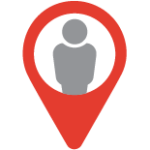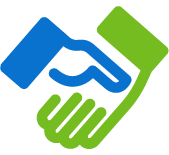Implement an integrated set of tools and practices at the state level that support families and providers with connecting to the right service at the right time.
1.3.1 Promote the 1-800-CHILDREN helpline as a statewide resource (centralized access point(The Centralized Access Point (CAP) at the state level is the 1-800-CHILDREN resource. It provides information to families and providers about child development and community-based services. CAP staff act as initial care coordinators, assessing parent concerns, walking parents through available resources, and empowering them to choose the services they want.)) for providers and families who are unsure where to go and are seeking early childhood care and education support, information, and resources. Ensure accuracy of helpline data through the implementation and maintenance of Aunt Bertha(Aunt Bertha provides a comprehensive state and local resource guide. Aunt Bertha staff (out of state) continually vet and update resources (48-hour guarantee to verify a program), ensuring an extensive statewide (and national) resource directory that helps families find resources.), a statewide resource directory.



1.3.2 Facilitate the expansion of IRIS, the Integrated Referral and Intake System(IRIS is a web-based communication tool for referrals that can be customized to include any partner from across the broader early childhood system. IRIS reflects the multi-sector partners of the local community. Communities customize referral forms to meet local needs. Partners track each independent referral for families in a community and can clearly identify where a family is in the process with another partner. IRIS also allows an organization to visibly display their capacity to receive referrals, allowing a community to self-assess which organizations are consistently “full,” where the most referrals are going, which organizations “close the loop” effectively, and how many referrals are successfully completed for families. IRIS provides an easy-to-use system that supports transparent communication, data-driven assessment of IRIS’ effectiveness and partner accountability, and the technology to connect partners regardless of their organizational data systems.), with interested communities in an effort to strengthen provider partnerships, communication, and accountability when connecting families to services.


1.3.3 Connect providers and communities to technical assistance(Technical Assistance (TA) is the provision of targeted and customized aid to develop or strengthen processes, knowledge application, or implementation of services by a professional(s) with subject matter expertise and skills in adult learning practices.) to help them effectively adopt and implement the tools, resources, and practices that meet their needs to streamline navigation for families.


1.3.4 Identify and support telehealth(The Health Resources Services Administration defines telehealth as the use of electronic information and telecommunications technologies to support long-distance clinical health care, patient and professional health-related education, public health, and health administration. Technologies include videoconferencing, the internet, store-and-forward imaging, streaming media, and terrestrial and wireless communications. Telehealth is different from telemedicine because it refers to a broader scope of remote health care services than telemedicine. While telemedicine refers specifically to remote clinical services, telehealth can refer to remote nonclinical services, such as provider training, administrative meetings, and continuing medical education, in addition to clinical services.) opportunities in a variety of health care and early childhood care and education settings to increase access to specialty services in rural areas.


What do these icons mean(To help Kansans see themselves as key contributors to the important work ahead, each tactic displays one or more icons representing where shareholders can have impact.)?

Kansas communities, providers, and families have embraced the benefits of tools such as 1-800-CHILDREN, IRIS, and state-level technical assistance to meet their early childhood needs. 1-800-CHILDREN, the statewide centralized parent helpline and online resource, has a robust toolkit – including marketing videos, printed fliers, and outreach staff to increase access and connect to resources. As IRIS continues to build networks within communities across the state, efforts are underway to create an application program interface (API) between IRIS and 1-800-CHILDREN, allowing helpline callers to be referred directly to IRIS organizations.
Adaptive TA provided initial assessment and tiered technical assistance supports to community partners as requested — exploring innovations and opportunities, coordinating, and providing topic-specific webinars, and streamlining processes for community partners.
Kansas established a statewide ASQ online system to remove financial, training and workflow barriers for providers wanting to add developmental screening to their work with young families and to allow for more equitable access to screening across the state. A developmental screen helps to identify if a child would benefit from community or early intervention services









